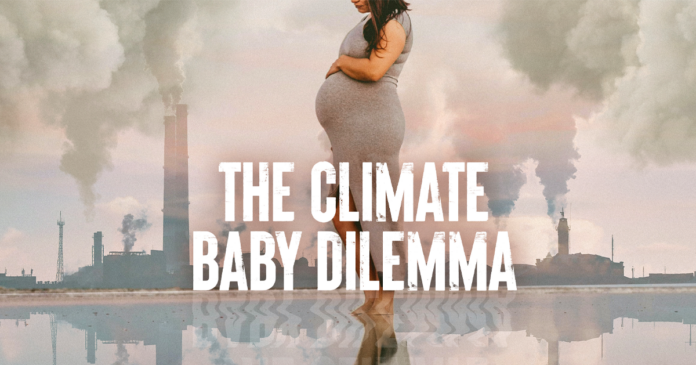The Canadian Broadcasting Corporation has released a documentary that features young women who have pledged not to have children due to anxieties surrounding climate change. This comes at the same time as a new think-tank study reveals nearly half of Canadian women anticipate having fewer children than they were originally planning.
“The Climate Baby Dilemma” follows Dr. Britt Wray, a postdoctoral fellow at the Stanford Center for Innovation in Global Health, as she interviews women in their early to late 20s about the mental health impacts of climate change.
The documentary features Emma Lim, the founder of the #NoFutureNoChildren pledge in 2019. The pledge quickly collected more than 10,000 signatures from women who declared they would not have children until governments enacted significant climate policies.
“Even though I want to have children more than almost anything,” writes Lim. “I am pledging not to until the government takes the climate crisis seriously.”
The documentary featured quotes from young women that appeared on screen.
“I feel incapable of welcoming an innocent human being into this world knowing the facts.” writes Allie Rougeot, 20.
“I am taking the pledge because I deserve to live on a planet that is taken care of,” writes Afet, 18.
“Young people like me don’t have the option of having safe and happy families,” writes Payton Mitchell, a climate activist at Concordia University. “Irresponsible governments kneeling to the fossil fuel industry took that away from us.”
While the NoFuturePledge originally went viral in 2019, the documentary was only released in November 2022.
Dr. Wray also interviews Meghan Kallman, co-founder of Conceivable Future, a network that aims to bring awareness to climate and reproductivity. Kallman organizes “Climate cafes” where groups meet to discuss how the climate is shaping their reproductive lives.
“There’s already so much life,” says one man in the group. “Is it possible just to share that life that’s already here?”
“I will change my life to show how serious this is,” he says. “The house is on fire.”
According to a study co-authored by Dr. Wray, nearly 40% of 16-25-year-olds reported feeling hesitant about having children.
These concerns from young people come amidst something of a fertility crisis in Canada. The country’s fertility rate now sits at 1.4, the lowest rate since records began in 1950.
A recent study published by Cardus, a Canadian think-tank, found that nearly half of women will end their reproductive years with fewer children than they would like. When asked what decreases the likelihood of having children, women reported significant concerns relating to climate change and global overpopulation on top of personal factors such as needing to focus on their careers or saving money.
According to Statistics Canada, 1 in 4 Canadians changed plans on starting a family because of the pandemic. A fifth of Canadians decided they wanted fewer children and 14% said they will wait longer than they had originally planned. Only 4% wanted more children or planned to have them sooner than originally planned.
